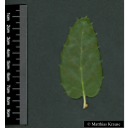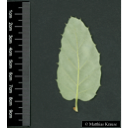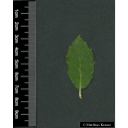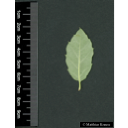Useful information about the taxon (species, subspecies, variety...)
Quercus suber L. 1753
Fagaceae
(APG IV)cork oak
Akzessionnummer: EG-18065
Pflanzjahr: 0
Taxon concept: The Plant List (2014), version 1.1
Distribution: Europe: Iberian Peninsula, France, Apennines; Northwest Africa
Quercus suber L. - Accepted: Quercus suber L. bei The Plant List (2014), version 1.1; Familie: Fagaceae (APG III)Quercus suber L. - Accepted: Quercus suber L. bei Zander 2008; Familie: Fagaceae (Zander 2008)Quercus suber L. - Accepted: Quercus suber L. bei BfN Checklist Flora DE; Familie: Fagaceae (APG IV)
- Flowers
- monoecious
- Flower ecology
- wind-pollinated (anemophilous)
- Life form
- woody, tree
- Leaves
- sclerophyllous; ovate, 4-7 cm long
- Foliage persistence
- evergreen
- Fruits
- acorn with cupule, cupule with elongated scales
- Fruit ecology
- animal-dispersed (zoochorous) (jays)
- Soil conditions
- preferentially on warm, non-calcareous, sandy soils
- Root type
- deep root system
- Natural occurrence (habitat)
- oak-pine forests, cork forests, maquis
- Vegetation typ and synecology (plant community)
- warm temperate (Mediterranean) broad-leaved evergreen sclerophyllous forests, woodlands, and scrub
- Natural propagation (all types)
- vegetative reproduction through stump sprouts
- Constraints according moisture
- drought tolerant
- Constraints according temperature
- not tolerant to temperatures below -10°C
- Comments
- xerophytic adaptations to warm and dry sites
- Life span
- long-lived (over 200 years)
- Usage
- cork is used for vine bottle stoppers, flooring, insulation, household products and sporting equipment, e.g. shuttlecocks and fishing rod handles; also used in space industry; cork is used as fuel wood as well
- Phytopathogenic organisms
- is vulnerable to the root pathogens Phythopthora cinnamomi and Phythopthora ramorum
- Bark
- thick
- Altidudinal lower limit (sea level in m)
- 0
- Altitudinal higher limit (sea level in m)
- 1000
eFloras (2008): Flora of China. Published on the Internet http://www.efloras.org.; Erhardt, W., Götz, E., Bödeker, N. & Seybold, S. (2008): Der große Zander. Enzyklopädie der Pflanzennamen. Band 2. Arten und Sorten. Eugen Ulmer KG, Stuttgart (Hohenheim), 18. Aufl., 2103 S.; Jäger, E. J. et al. (2007): Rothmaler - Exkursionsflora von Deutschland. Band 5: Krautige Zier- und Nutzpflanzen. Spektrum Akademischer Verlag, Aufl. 31.10.2007: 880.; Lauber, K. et al. (2018): Cinnamomum glanduliferum. In: Flora Helvetica. Haupt Verlag. Available at: Info Flora (2004-2019). See: https://www.infoflora.ch/de/flora/cinnamomum-glanduliferum.html; Singh, C. et al. (2013): Exploration of antimicrobial potential of essential oils of Cinnamomum glanduliferum, Feronia elephantum, Bupleurum hamiltonii and Cyclospermum leptophyllum against foodborne pathogens. Journal of Pharmaceutical Biology, 51(12): 1607-1610.; The International Plant Names Index (2009). Published on the Internet http://www.ipni.org; Courtesy to IPNI, 2009. Exported from IPNI at date: 2009-09-22 20:17:51;
Diese Webseite verwendet Google Maps, um Karten und Standorte von Pflanzen in den Hohenheimer Gärten anzuzeigen. Dadurch werden unter Umständen Daten an Google weitergeleitet, was mit einer Verarbeitung Ihrer personenbezogenen Daten verbunden sein kann. Die Datenschutzerklärung von Google finden Sie hier: Datenschutzerklärung von Google




